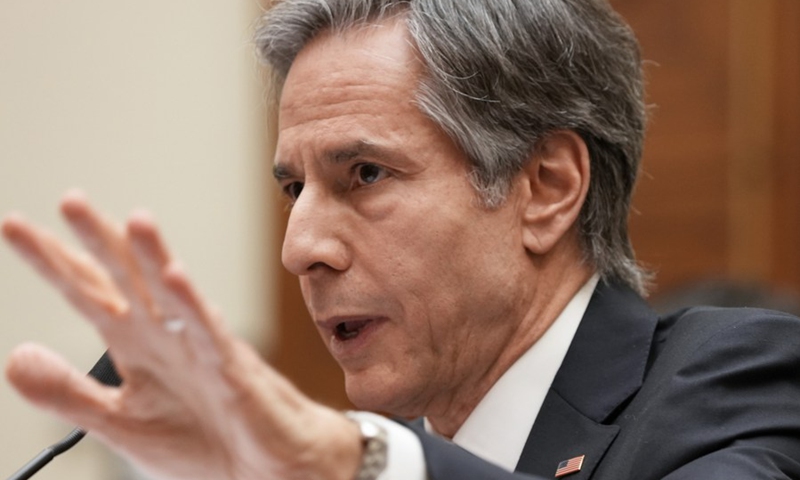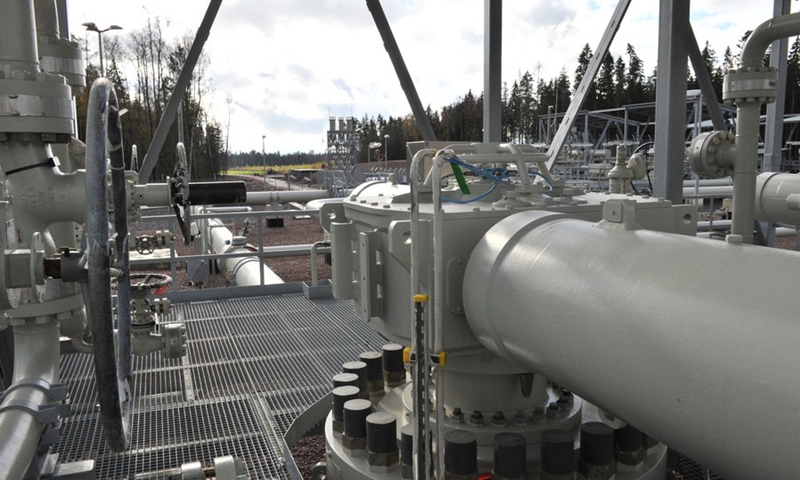
U.S. Secretary of State Antony Blinken testifies before U.S. House Committee on Foreign Affairs on the Biden Administration's Priorities for U.S. Foreign Policy on Capitol Hill in Washington, D.C., on March 10, 2021.(Photo: Xinhua)

File photo taken on Oct. 8, 2012 shows Nord Stream pipeline equipments before the opening ceremony of the North Stream gas link in Portovaya bay, some 60 kilometers from the town of Vyborg in northwestern Russia.(Photo: Xinhua)
In his first trip to Europe since taking office, U.S. Secretary of State Antony Blinken on Tuesday peddled the idea that the Russia-Germany Nord Stream 2 gas pipeline is "bad."
"President (Joe) Biden has been very clear, he believes the pipeline is a bad idea, bad for Europe, bad for the United States, ultimately it is in contradiction to the EU's own security goals," Blinken said at a press conference with Jens Stoltenberg, Secretary-General of the North Atlantic Treaty Organization (NATO).
The U.S. top diplomat is in Brussels for a two-day meeting of NATO foreign ministers to revamp the transatlantic partnership.
Blinken claimed that the pipeline could "undermine" the interests of Ukraine, Poland and other allies. He added that he would discuss this with his German counterpart Heiko Maas face-to-face.
The Nord Stream 2 is designed to transport natural gas from Russia to Germany through the Baltic Sea. The 1,230-kilometer pipeline could deliver 55 billion cubic meters of gas per year, critical to Germany's industry and energy transition.
The pipeline is already around 95 percent complete, and Germany is insisting on the completion of the project despite opposition from the United States.
Both Germany and Russia point out that the project is purely an economic one. But Washington said that the project would make Europe too dependent on Russian energy, and undermine Ukraine and Poland's economic interests as gas transit countries. The United States has thus imposed sanctions against some European companies taking part in the construction work.
"I'm sure I'll have an opportunity to reiterate that, including the law in the United States, which requires us to sanction companies participating in the efforts to complete the pipeline," Blinken said.
